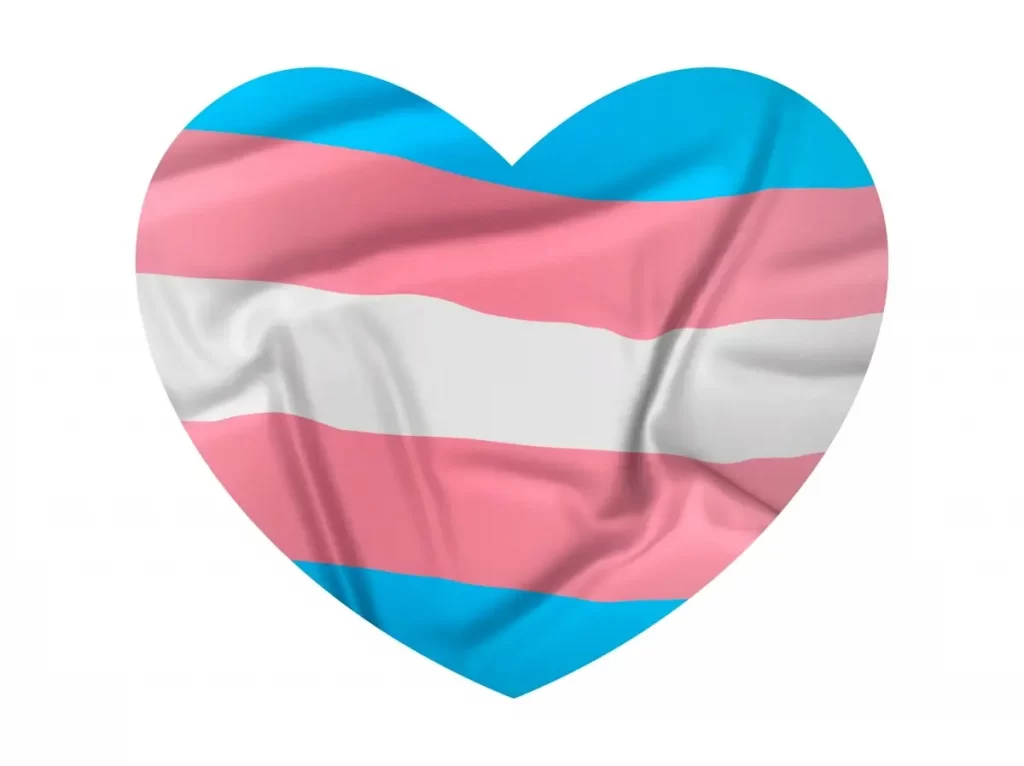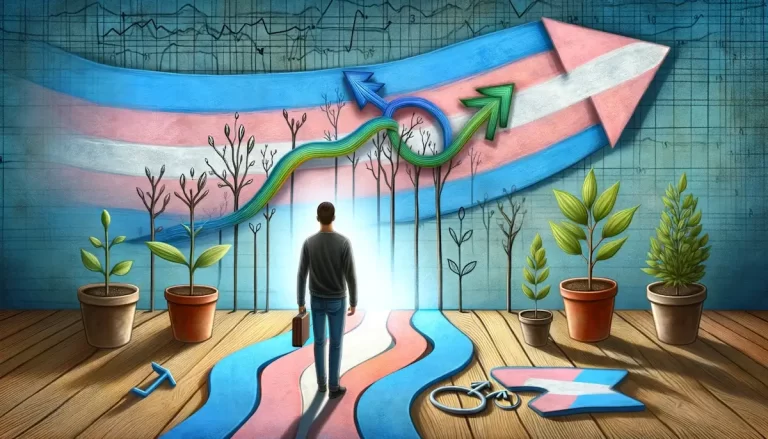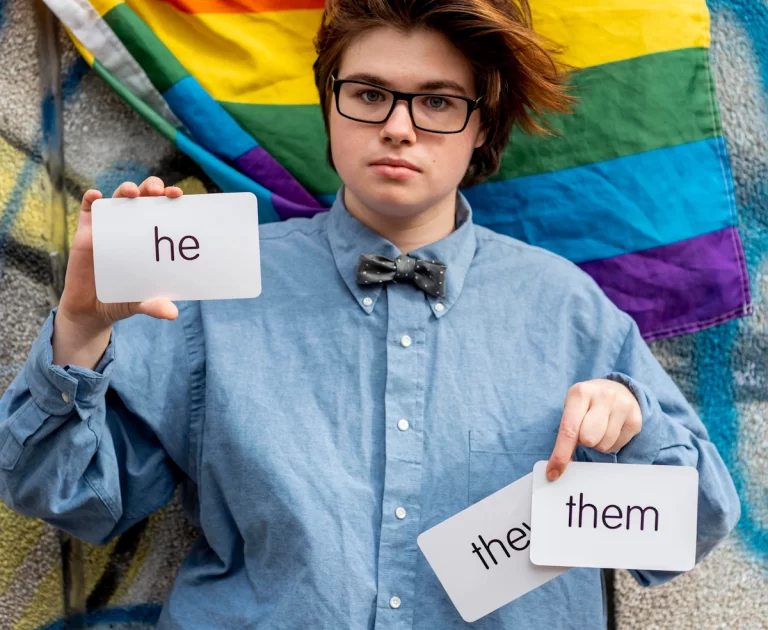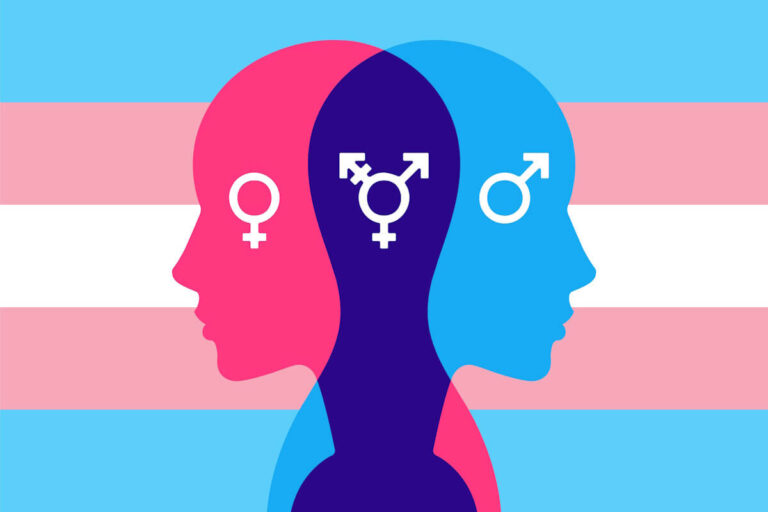As a community, we thrive when we support and uplift one another. For those of us who want to be allies to transgender individuals, it's important to learn about their experiences and the challenges they face. Being an ally means more than just tolerating or accepting trans individuals; it means actively advocating for their rights and creating a safe and inclusive environment.
In this article, we'll explore the basics of transgender identity and the diversity within the transgender community. We'll discuss the importance of using preferred names and pronouns, understanding gender expression, and respecting individuals' privacy and autonomy. We'll also provide practical tips for being an ally to trans people, including how to support those experiencing discrimination and how to foster empathy and education. By the end of this article, we hope to equip you with the knowledge and tools to be an effective ally to the transgender individuals in your life.
Key Takeaways
Here are four key takeaways to keep in mind when being an ally to transgender individuals:
| Educate yourself: Take the time to learn about transgender identity and the diverse experiences within the community. Use preferred pronouns and language, and avoid stereotypes and gendered compliments. |
| Speak up: Be an outspoken advocate for transgender rights, and be polite but firm in correcting others who use incorrect names or pronouns for transgender individuals. |
| Take action: Push for policies and laws that protect transgender individuals, and work to make spaces such as schools and homeless shelters safe and inclusive for transgender people. |
| Show support: Attend events and community spaces to show support for transgender individuals, and provide as much support as possible while respecting their privacy and autonomy. |
If you're looking to connect with transgender individuals, check out MyTransgenderCupid, a dating site specifically designed for trans singles and their admirers. But remember to approach these connections with respect and understanding.
Embarking on the Journey: Becoming an Ally to Transgender Individuals
As you embark on the journey of becoming an ally to transgender and non-binary individuals, it is essential to remember the pre-existing knowledge of respecting gender identities, continuously educating yourself on transgender issues, and using preferred language and pronouns. Being an ally means being willing to learn and grow, and understanding that there is no one right way to be transgender. It's important to avoid stereotypes and gendered compliments towards transgender individuals and to be considerate of the questions asked to them.
It's vital to recognize that not all transgender individuals identify as male or female, and some may identify as nonbinary. Understanding the basics of sex and gender is crucial in being an ally to transgender individuals. Sex refers to biological characteristics, while gender refers to social and cultural characteristics.
It's important to remember that gender identities are unique to individuals, and it's not our place to question or judge them. Using preferred pronouns and language can go a long way in showing support and respect to transgender individuals.
Transitioning into being an ally to transgender individuals requires continuous effort and education. It's important to be an outspoken supporter of transgender rights and to provide support to transgender individuals experiencing discrimination.
Remember to respect the privacy and autonomy of transgender individuals and to be willing to learn from mistakes. Understanding the basics of sex and gender is just the beginning of becoming a good ally to transgender individuals.

Understanding the Basics: Sex and Gender and Transgender
So, let's talk about the basics of sex and gender and transgender. It's important to understand the distinction between sex, which refers to biological characteristics, and gender, which refers to social and cultural roles and expectations. And when we talk about transgender individuals, we're referring to people whose gender identity does not align with the sex they were assigned at birth.
Distinction between Sex and Gender
Understanding the difference between sex and gender is crucial for being a good ally to trans and non-binary people. While sex refers to a person's biological characteristics, gender relates to a person's identity and how they perceive themselves. It's important to recognize that not everyone who is born male or female identifies as such and that some people identify as nonbinary, meaning they do not fit within the traditional binary understanding of gender.
As a cisgender person, I recognize that my experiences and understanding of gender are limited and may not align with those of transgender and nonbinary individuals. It's important for me to support trans and nonbinary individuals in their journey to live as their authentic selves. This includes advocating for gender-neutral restrooms and using inclusive language to create a more welcoming environment. By becoming a better ally, we can support a more inclusive and diverse community.
Moving forward, it's important to define what it means to be transgender and how we can best support and uplift this community.
Defining 'Transgender'
If you want to be a better ally to trans and nonbinary people, it's crucial to understand what it means to be transgender. Contrary to popular belief, gender identity is not the same as biological sex. Gender identity refers to a person's internal sense of self, while biological sex refers to physical characteristics such as genitalia and chromosomes. Transgender individuals have a gender identity that does not align with the sex they were assigned at birth.
To support transgender individuals and be a better ally to the LGBTQ community, it's important to recognize and challenge stereotypes about transgender people. Stereotypes such as all trans people wanting to medically transition or all trans people being a certain way can harm the community and perpetuate negative attitudes towards them.
We must treat transgender people with respect and dignity, regardless of whether we fully understand their gender identity or not. By supporting trans rights and educating ourselves on the experiences of trans individuals, we can create a more inclusive and accepting world for everyone.
Understanding the importance of the right name and pronoun is an essential step in being a great ally to transgender individuals.
| Pro Tip: |
|---|
| Before we can be effective allies, it's vital to grasp the fundamentals of what it means to be transgender. This includes understanding the term 'transgender'. There's a compelling historical context to this term, particularly in the United States. Interested in learning more about the evolution of transgender rights? Check out the article on the History of Transgender Rights in the United States. |
Importance of the Right Name and Pronoun
As an ally to transgender individuals, we understand the importance of using the right name and pronoun. This small act of respect can make a big difference in someone's life. We know that everyone deserves the autonomy to choose their own name and pronouns, and we are committed to honoring those choices.
Name and Pronoun Respect
Respecting a transgender person's preferred name and pronouns is crucial to being a perfect ally. It shows that you acknowledge and respect their gender identity, and it can make a huge difference in their daily lives. Here are some tips on how to show respect for a transgender person's name and pronouns:
- Ask for their preferred name and pronouns: Don't assume that you know how a person identifies or what name they use. It's important to ask and use the name and pronouns that they prefer.
- Use their preferred name and pronouns consistently: Practice using their preferred name and pronouns in your everyday conversations with them. This can help make it a habit and show that you are committed to respecting their identity.
- Correct others who use the wrong name or pronouns: If you hear someone using the wrong name or pronouns for a transgender person, politely correct them and use the correct name and pronouns.
- Don't ask invasive questions: It's okay to ask questions to better understand a transgender person's experience, but avoid asking personal or invasive questions. Respect their privacy and autonomy.
Respecting a transgender person's name and pronouns is just one way to show allyship. Understanding the dynamics of gender expression and how to support transgender and nonbinary individuals is also important.
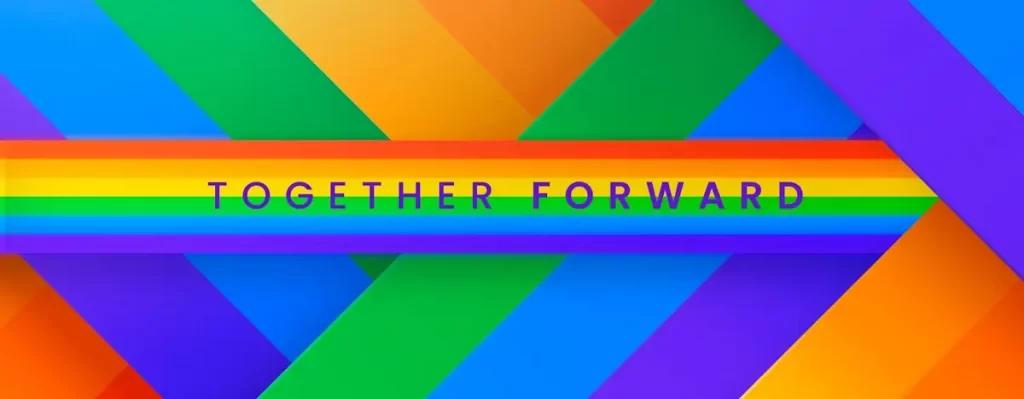
Dynamics of Gender Expression
When learning how to be a good ally to transgender individuals, it's important to understand the dynamics of gender expression and how it can vary greatly within the transgender community. As allies, we must acknowledge that gender identity is a personal and complex concept that can differ from person to person.
Some transgender individuals may identify as nonbinary or may not conform to traditional gender roles, while others may present as more traditionally masculine or feminine. It's important to support and respect each individual's unique journey, regardless of our own understanding or expectations.
As allies, it's also important to recognize that transgender individuals may have questions or concerns about their own gender identity, and it's not our place to judge or invalidate their experiences. We can offer support by listening without judgment and providing resources for further education and exploration.
Additionally, we must always use the correct pronouns and names for transgender individuals, even if it may be unfamiliar or uncomfortable for us. Intolerance and disrespect towards someone's gender identity can have serious and harmful consequences, so it's crucial for us to be aware of our own biases and actively work to overcome them.
Ultimately, being a good ally to transgender individuals means supporting and advocating for their right to express themselves authentically and without fear of discrimination. By understanding and respecting the diversity within the transgender community, we can create a more inclusive and welcoming society. In the next section, we'll explore the idea of transgender identity beyond just a label, and how we can continue to be supportive allies.
Transgender: Beyond a Label
As allies of transgender people, we must recognize that their experiences are unique and cannot be reduced to a single label. It's important to understand that each transgender person has their own journey, struggles, and victories. By acknowledging and respecting their individuality, we can create a more inclusive and supportive community for all. Learn more about transgender individuals and their experiences on MyTransgenderCupid, the trans dating site for transgender women and their admirers.

Transgender People’s Unique Experiences
To truly be a good ally to transgender and nonbinary individuals, you must understand the unique experiences and challenges they face on a daily basis. Members of the transgender community often experience discrimination, harassment, and violence simply for existing as their authentic selves.
Additionally, they may face difficulties accessing healthcare, employment, and safe spaces. It is important to recognize that gender identity is a deeply personal aspect of one's identity and that it might shift back and forth over time.
As an ally to transgender people, it is important to support trans people in both big and small ways. This can include educating oneself on trans issues, asking questions about a transgender person's experiences (while respecting their privacy), using the correct pronouns, and encouraging others to do the same.
It is crucial to avoid invasive questions or comments about a transgender person's body and instead focus on addressing them as part of a group that deserves dignity and respect. With empathy and education, we can create a safer and more inclusive world for transgender people.
Transition to next section: Now that we understand the unique experiences of transgender individuals, let's explore what it means to be an ally and how we can take action to support this community.
Becoming an Ally: What Does it Mean?
Becoming an ally means taking the time to learn about transgender identity and actively working towards supporting and advocating for the transgender community so that everyone feels safe and respected. Being an ally involves supporting individuals who identify as transgender, nonbinary, or questioning, and being intolerant of any discrimination against them.
It means being committed to learning and using appropriate language and terminology and understanding the diversity within the transgender community.
To become an ally, it is important to understand the consequences of not being supportive. Discrimination and lack of support can have a significant impact on the mental health and well-being of transgender individuals. The table below highlights some common experiences that transgender individuals face, and actions that allies can take to support them:
| Transgender Experiences | Ally Actions |
|---|---|
| Misgendering and deadnaming | Use preferred pronouns and names |
| Discrimination in employment, housing, healthcare, and education | Advocate for transgender-inclusive policies and laws |
| Violence and harassment | Speak out against intolerance and seek help from authorities |
| Lack of access to healthcare | Advocate for transgender-inclusive healthcare and support organizations |
| Invisibility and erasure | Amplify transgender voices and experiences |
The Ally Journey: Learning, Growing, and Challenging Biases
Becoming an ally is an ongoing process that requires a willingness to learn and grow. It is important to recognize that being an ally is not always easy and may involve challenging our own biases and assumptions. However, the rewards of being an ally are immeasurable, as we help create a more inclusive and welcoming world for all individuals, regardless of their gender identity.
As allies, we must also acknowledge the challenges faced by transgender individuals and work to address them. In the next section, we will explore some of these challenges and how they impact the lives of transgender people.
| Pro Tip: |
|---|
| Being an ally goes beyond just expressing solidarity. It's about active participation in advocating for transgender rights and equality. For some inspiration, dive into our piece on Transgender Rights Activism Key Figures. |
Challenges Faced by Transgender People
Transitioning into the challenges faced by transgender people, it's important to recognize the obstacles they encounter on a daily basis. From discrimination to harassment, transgender people face a range of issues that can make their lives difficult. As an ally to transgender people, it's crucial to understand these challenges and offer support in any way possible.
One of the biggest challenges faced by transgender people is the lack of acceptance and understanding from society. Many people still view being transgender as unnatural or abnormal, without making an effort to learn about it. This lack of education can be hurtful and lead to discrimination in various aspects of life, such as employment and housing.
Another challenge faced by transgender people is the constant fear of violence or harassment. Transgender people are more likely to experience violence, both physical and verbal, compared to cisgender individuals. This fear can be overwhelming and make it difficult for transgender people to feel safe and included in society. As allies, it's crucial to support transgender and nonbinary people in your life and create a safe and welcoming environment for them.
Moving forward, we can all take steps to become better allies to transgender people and create a more inclusive world. In the next section, we will discuss practical ways to be an ally to trans people and make a positive impact in their lives.
| Pro Tip: |
|---|
| The challenges faced by the transgender community can vary widely depending on the socio-cultural environment. For instance, consider the unique hurdles in the UK. Expand your understanding with our article, Transgender Rights in the UK. |
Practical Ways to Be an Ally to Trans People
If you want to support the transgender community, the following actions can make a positive impact in creating a more inclusive and accepting environment. Being an ally to transgender individuals is a practical way of showing support for those who identify as transgender, nonbinary, or questioning their gender identity. It is important to recognize that intolerance towards the transgender community is still prevalent, and every effort to be an ally can help to make a difference.
To be an ally, start by educating yourself about transgender issues and the diverse experiences of transgender individuals. You can also show support by asking for preferred pronouns and using language preferred by transgender individuals. Additionally, it is important to avoid stereotypes and gendered compliments towards transgender individuals and to be considerate of questions asked to transgender individuals.
In order to create a more inclusive and accepting environment, it is essential to be an outspoken ally for transgender rights. This involves advocating for policies that protect transgender people, pushing for inclusivity instead of just tolerance, and working to pass laws that outlaw discrimination based on gender identity.
By providing as much support as possible and learning from mistakes, we can make a positive impact on the lives of transgender individuals. Understanding transgender experience: empathy and education are the next steps in becoming an ally to the transgender community.
| Pro Tip: |
|---|
| The fight against transphobia is everyone's responsibility. Get further insights on this topic by reading Stand Against Transphobia: Support Transgender Women. |
Understanding Transgender Experience: Empathy and Education
To truly understand the experiences of transgender individuals, you must step outside of your own perspective and immerse yourself in their stories and struggles. Empathy is key to becoming a good ally. It's important to acknowledge that everyone's journey is different and that there is no one-size-fits-all approach to being transgender or nonbinary. By actively listening to transgender individuals and learning about their experiences, we can better understand their unique challenges and offer our support.
Education is also essential in being a good ally. Understanding the complexities of gender identities and the issues that transgender individuals face can help us become more tolerant and accepting. It's important to educate ourselves on the language and terminology used within the transgender community and to use it respectfully. By educating ourselves and others, we can work towards creating a more inclusive and accepting society.
In short, being an ally to the transgender community requires empathy and education. By actively listening to their stories and learning about their experiences, we can develop a deeper understanding of the challenges they face. With this understanding, we can work towards creating a more tolerant and inclusive society for all. In the next section, we'll explore some real-life examples of successful allies and the impact they've had on the transgender community.
| Pro Tip: |
|---|
| Understanding the challenges of dating as a trans person is a vital part of empathy. Learn more by exploring our article, Unmasking Challenges: Trans Dating in the US. |
Stories of Successful Allies: Real-life Examples
Get inspired by these real-life examples of successful supporters who have made a positive impact on the transgender community. These allies have shown that support and acceptance can go a long way in creating a safe and inclusive environment for transgender and nonbinary individuals.
- One example is a mother who stood up for her transgender son when he was discriminated against by his school. She fought for his right to use the bathroom that matched his gender identity and ensured that he was treated with respect and dignity. Her advocacy not only helped her son but also paved the way for other transgender students to be treated fairly and equally.
- Another example is a business owner who made their workplace inclusive of transgender and nonbinary employees. They implemented gender-neutral bathrooms, provided training on transgender issues for all staff members, and made sure that their company policies were inclusive of all gender identities. This ally created a safe and welcoming environment for their employees, which fostered a sense of belonging and community.
- A third example is a friend who supported their transgender friend through their gender transition. They used their friends' preferred names and pronouns, helped them navigate the transition process, and stood up for them when they faced discrimination or harassment. This ally showed that true friendship means accepting and supporting someone for who they are, regardless of their gender identity.
Inspiring Instances of Transgender Allyship
These real-life examples demonstrate the positive consequences of being an ally to the transgender community. By showing support, empathy, and understanding, allies can help create a world where transgender and nonbinary people can live freely and authentically. Let's continue to learn, grow, and support one another in our journey toward inclusivity and acceptance. In the next section, we will explore how we can all be inclusive allies and foster understanding in our communities.
| Pro Tip: |
|---|
| One of the most potent acts of allyship was the Stonewall Inn uprising. Be inspired by the courageous people who stood up for transgender rights at the Stonewall Inn: Historic Landmark for Trans Dating. |
Conclusion: Being an Inclusive Ally and Fostering Understanding
Transition: Now that we've seen some examples of successful allies in action, let's talk about how you can be an inclusive ally and foster understanding in your own life. As an ally, it's important to support transgender, nonbinary, and questioning individuals as they navigate a world that often operates within a rigid gender binary.
One key aspect of being an ally is to educate yourself on transgender issues and terminology. This includes respecting individuals' preferred pronouns and avoiding assumptions about their gender identity. It's also important to recognize the diversity within the transgender community and to avoid stereotypes or gendered compliments. Remember that being an ally is an ongoing process, and it's okay to make mistakes as long as you are willing to learn from them and continue to support your transgender friends and loved ones.
However, sometimes even with the best intentions, intolerance or discrimination can still occur. As an ally, it's important to speak out against these actions and support those who have been affected. This can mean advocating for transgender rights or simply being a listening ear for someone who is experiencing discrimination. By standing up against intolerance and supporting transgender individuals, you can help create a more inclusive and understanding society.
As MyTransgenderCupid, we recognize the importance of having a supportive community for transgender individuals and their allies. By promoting education, understanding, and support, we can work towards a world where everyone is respected and valued regardless of their gender identity. So let's continue to be allies and create a world where everyone can live authentically and without fear of discrimination.

